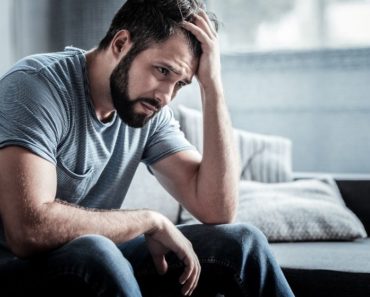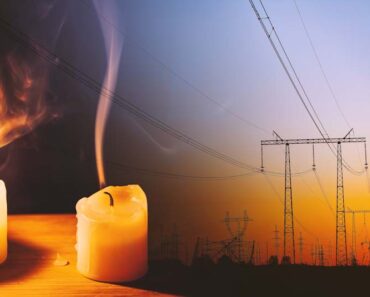When it comes to prepping and survivalism, I’m a straight shooter, and I like to tell people the truth about these topics. I believe being honest is the way to go because you avoid creating high hopes and expectations for those new to these “lifestyles.”
That being said, let’s have a difficult conversation. Let’s talk about those who die first in a crisis. It might not sit well with you, and you might not enjoy reading this article because you or someone close to you might fall into one of the categories of people I’m going to mention in the following paragraphs.
Rest assured, I empathize with the frustration you may be experiencing after reading all of this. The topic at hand is far from pleasant, and the harsh reality of many individuals facing the aftermath of a SHTF event is unsettling, to say the least. However, there’s no benefit to sugarcoating. Numerous examples worldwide illustrate that casualties are unavoidable in the event of a large-scale disaster.
A while back, there were attacks in certain parts of the country that were meant to cripple the electric grid. The attacks on various electric substations, I believe, were just a test run to figure out the vulnerabilities of our power grid.
Consider a coordinated attack striking both the East and West coasts simultaneously. While the loss of power across vast areas would undoubtedly be the most conspicuous impact, the true cause for concern lies in the duration of the power outage. The disruption of communication, public utilities, and emergency services—just to name a few—would induce widespread panic and confusion, surpassing even the initial darkness engulfing entire cities.
As days go by without power, things will deteriorate dramatically since the most basic resources will be gone in just a few days. Water treatment facilities, transportation, and the supply chain would stop functioning, and even your refrigerated food would go bad if you can’t keep the power flowing. Sure, generators will provide some temporary relief, but I doubt many folks have enough fuel to keep them going for as long as needed.
Our society will start to boil, and remaining law enforcement and emergency services will be overwhelmed and understaffed (since those folks have to take care of their own as well). Looting and violence will become the norm as desperation sets in.
Days turn into weeks, and weeks into months. The grim reality starts to settle in, and the death toll will rise, not from the immediate impact of the power grid failure but due to its prolonged effects and consequences.
The truth is that only preppers and survivalists have reasons to stay optimistic, and only if they did their homework and planned for such an SHTF event. At least we are aware of the dangers governing our world, and we take steps to protect ourselves from such dangers. Even so, many people will die, and among those people, we will also find preppers.
One of the topics I’ve raised during my meetings with other fellow preppers is, “Who dies first?” I’ve heard a lot of opinions, and here is my list of who goes first when the brown stuff hits the fan.
1. People with physical weakness
In my opinion, this is the first group that will suffer extreme loss, and it’s quite a diverse group. People in this category are usually dependent on others to survive, and in first-world countries, there is a finely tuned system of technology and network care that will be incapacitated almost immediately in times of crisis.
The first to go are those with physical disabilities who are almost entirely dependent on others to survive, whether they be loved ones or professional caregivers. Those with mobility issues due to a certain injury or disability will have a hard time evacuating if need be. For example, a wheelchair-bound person will most certainly find themselves trapped, and chances are no one with a wheelchair van will come anytime soon.
Then, there are the elderly who have to deal with the effects of aging and the health issues it brings along. Many of the people in this category, especially in our country, need prescription medication and routine medical care to deal with health problems. For them, going a few days without these conveniences could be life-threatening. Most of them have to deal with diabetes or hypertension, and you can imagine how the stress of an SHTF event will amplify their symptoms.
Besides the elderly, a particular group of people, the children, are extremely vulnerable. This is obvious for infants and toddlers, and only parents know how much work is needed to keep them alive and healthy. Their survival is heavily dependent on their guardians, and their chances of survival are linked directly with the level of preparedness of their parents.
People with chronic conditions also face a dire predicament when the crisis disrupts medical services, and you can imagine that requiring dialysis during such a time is an almost impossible task. The same goes for people who need a steady supply of oxygen or those relying on various medical equipment to keep them alive.
I once talked about emergency preparedness within a small community, and they told me that some children have allergies, and one of them has epileptic seizures and often requires anti-seizure drugs. I’ve told them that for them, it should be a priority to obtain medications such as EpiPens and the ones needed for the kid suffering from epilepsy. They would also have to figure out how to obtain more of such items when professional healthcare is not available.
In the physically weak category, I will also include the “out of shape” folks, to put it lightly and not to offend anyone. If you’re a couch potato, your chances of survival are slim during a crisis because there will be instances where physical endurance and dexterity will be needed to survive the ordeal. The good news for these folks is that compared to the other categories of people listed here, it’s much easier to get in shape than they believe.
2. People with mental weakness
There are people with various types of mental weaknesses out there, and some may deal with such weaknesses without even realizing it. Now, it goes without saying that those who suffer from grave mental illness that need constant supervision or the care of a guardian are the first to go. Dealing with an unstable person during an emergency is extremely difficult because they pose a danger to themselves but also to those around them.
Now, I’ve heard in the last decade that this country is dealing with a mental health problem at the national level, and mental weakness can vary from one individual to another. Some may have problems with figuring out their identity or gender, while others have had it with the hardship of life and the challenges it brings every day.
Even more frightening is that with the technological advancement of our society, there has also come a decline in common sense and survival instincts. We have become creatures of comfort, and it shows in our everyday life. The younger generation can’t go a few hours without the internet, game consoles, or gadgets, let alone a few days.
There are a lot of people experiencing extreme stress, depression, and anxiety during “times of peace,” and it seems they are somehow trying to learn how to live with these mental weaknesses rather than fixing them. Now imagine how these people will react during and in the aftermath of societal collapse.
I personally believe that people who are mentally weak will either turn against everyone around them, going bananas, to put it lightly, or they will take the easy way out and bite the bullet. Either way, their actions will have an impact on those around them, whether they be strangers or loved ones.
Even if you are a tough individual, there’s no telling how you will react in the face of adversity if you haven’t been in that spot before or in a similar situation. The mental strain of enduring the drastic alteration of your known world can exacerbate existing mental health issues or create new ones.
3. Unprepared people
In this category, you will find common folks (the non-preppers) but also preppers and survivalists who believe they have it all figured out. First of all, there are those who struggle to just get by, and there are many of them. In fact, I’ve recently read that 78% of Americans are struggling to live paycheck to paycheck. To me, this number is insane, and I’m sure these folks lack the means to prepare for whatever events you and I consider life-altering. In fact, they are so preoccupied with surviving tomorrow that they don’t make any long-term plans or prospects for their future. The lack of resources encompasses not just financial means but also the absence of information and knowledge.
Secondly, the disparity between those with ample resources and those without becomes evident when various events cause social upheaval. What begins as a peaceful march for justice usually turns into an opportunity for looting and violence. And when it comes to looting, it’s not the water and food that fly off the shelves, but rather electronics, clothes, and other expensive goods that aren’t very affordable to the general public. Looters will put themselves in danger and risk clashing with law enforcement just to get their hands on the latest iPhone and designer shoes. Imagine what would happen if food and water became their main priority, and they figured out you have plenty stockpiled in your home.
4. Leaders of various nature
History has shown us again and again that when things go south, people will look for those responsible and hold them accountable. While every problem has a root cause that may or may not be complex in nature, it’s guaranteed that the problem will be associated with someone’s leadership.
Leaders, regardless of whether they are part of a political or religious organization, have all the means to establish control in stable times. However, they may quickly become targets when the stability of their followers is threatened, and they fail to produce answers and solutions. Blaming it on someone else only works so many times, and they will no longer be able to pass the blame when everyone’s in the same boat. They become the focal point of public outrage, and they might die next, as the masses believe that by eliminating them, the problems these leaders created might also go away.
Concluding
If you fall into one of the groups listed here, I’m sorry to tell you that when the proverbial brown stuff hits the fan, your chances of making it out alive are slim to non-existent. However, there’s also good news, and you should know that you still have time to make preparations for whatever the future may throw at you. Now, in stable times, it’s time to plan for your next move and make sure you increase your survival chances by any means necessary. Remember, checking out should be your last option.






![Rural vs Urban Prepping [PODCAST]](https://survivalcove.com/wp-content/themes/mts_sociallyviral/images/nothumb-sociallyviral-featured.png)





















